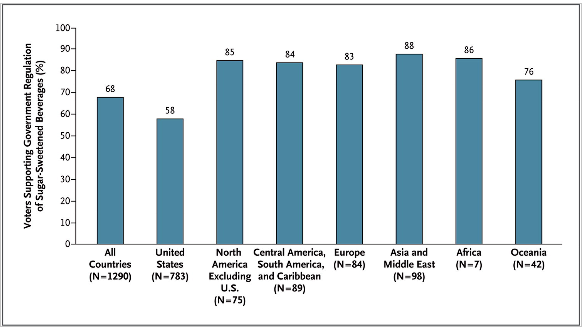Food industry opposes the UK’s strategy to improve health
Last month, the UK government announced guidance for the food industry on compliance with its new policies on dealing with foods High in Fat, Sugar, or Salt (HFSS): Restricting promotions of products high in fat, sugar or salt by location and by volume price: implementation guidance.
The food industry is not happy about these policies.
Kellogg has launched a legal challenge.
Kellogg has launched a legal challenge against the Government’s upcoming restrictions on retail promotions for food and drink high in fat, salt and sugar (HFSS), claiming the rules unfairly represented breakfast cereals.
On what basis?
The manufacturer argued that the formula used tomeasure the nutritional value of food was wrong when it came to breakfast cereals, as the Nutrient Profiling Model (NPM) only accounted for portions of dry cereals and not for a bowl of cereal and milk…Breakfast cereals are dehydrated foods, that are intended to absorb milk to make the food more palatable and give the food its intended flavour and texture. Hardly anyone sits down to a bowl of dry breakfast cereals in the morning – cereals are almost always eaten with milk.
What’s really at stake?
From October this year, new legislation will restrict retail promotion of HFSS products. The changes could lead to a reported loss of 1.1bn per year.
The food industry is also arguing that the new regulations will cause a consumer backlash.
These restrictions might escape public scrutiny, but consumers will get a horrible shock when they wake up one day and find their favourite brands have been ruined by regulation and cost more. Unless manufacturers fight back, be it in the courts or out in the public square, it’ll be too late to do anything about it.
And that the HFSS regulations won’t do any good.
The soft drink industry, however, sees the regulations as no problem: “The soft drinks category will be affected by new HFSS legislation coming into force in England. But having already done plenty of work in reformulating and innovating for the UK sugar tax, the sector is well placed to turn a challenge into an opportunity.”
What’s all this about? Here’s a quick review of the HFSS history:
2018: In Chapter 2 of the Childhood Obesity Plan, the UK government set out its intention to end the promotion of high fat, sugar and salt (HFSS) products by location and by price. It committed to consult on how this should be implemented. This was based on evidence that food retail price promotions are widespread and effective at influencing food preferences and purchases (particularly for children), and on previous reports recommending reducing and rebalancing promotions towards healthier food and drink to help prevent obesity in children.
2019: The consultation on restricting the promotion of HFSS products was held.
2020: The government theld a consultation on technical enforcement of the restrictions. It announced in Tackling obesity: empowering adults and children to live healthier lives, that it would legislate to end promotion of HFSS products by volume (for example, “buy one get one free”) and location both online and in store in England. It published a formal consultation response.
2021: The government introduced legislation to restrict the promotion of HFSS products by volume price both online and in store in England., based on the nutrient profiling technical guidance 2011.) These regulations will come into force on 1 October 2022.



